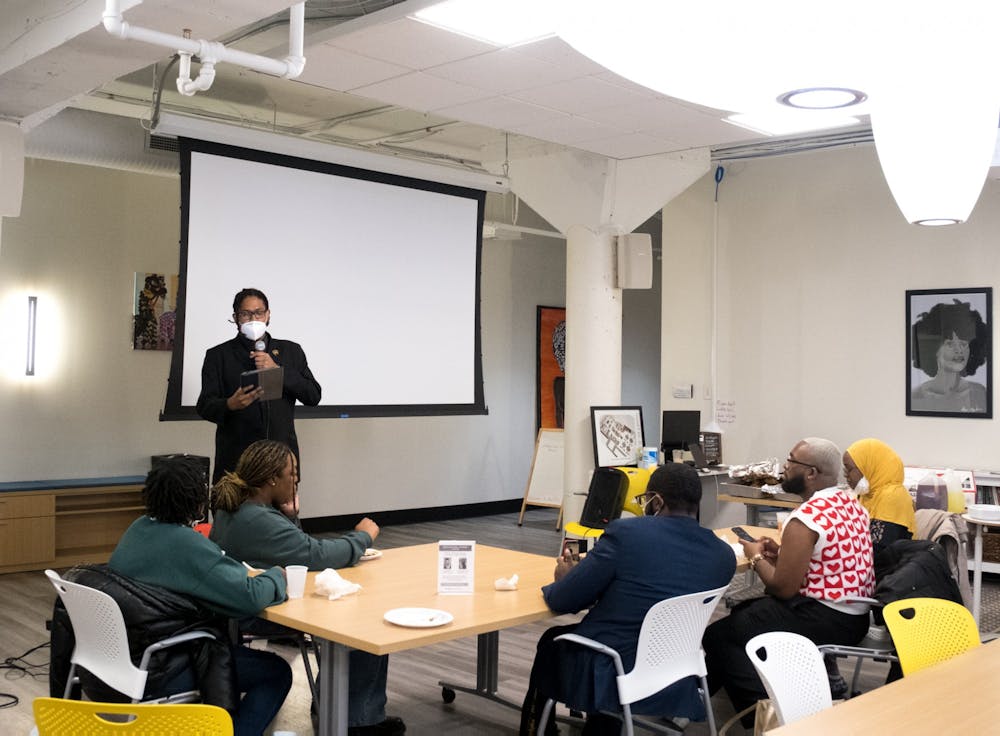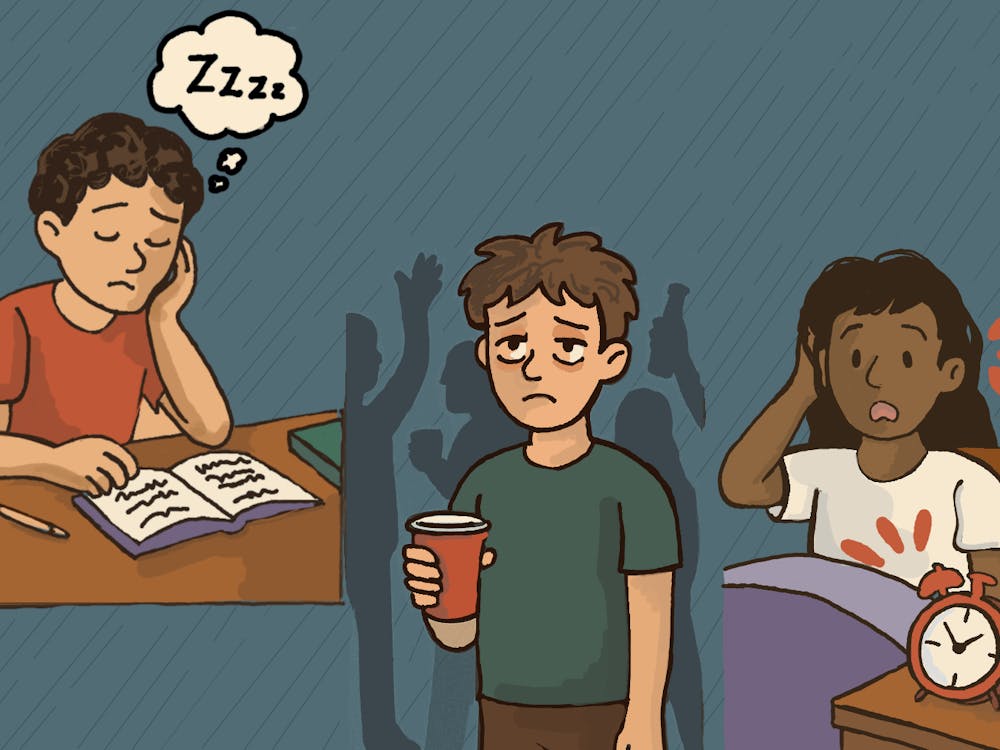In celebration of Black History Month, students gathered in the Multicultural Student Center Tuesday to perform and be in community with one another during the Multicultural Student Services’ “Solidarity Through Self-Care” Open Mic.
Originally intended to take place as part of the 11th annual Martin Luther King Celebration, the event was rescheduled to a later date to make in-person operation possible. The open-mic format sought to give students a space to discuss the topic of self care in connection with their experiences and challenges attending a predominantly white institution.
Despite the event occurring at a later date than that of the MLK Celebration, Indiyah Mabry, student director of the MSC and fourth-year College student, recognized the importance of offering the event to discuss self care for people of color, and more specifically, the Black community. Despite the event’s change of course, Mabry said she thinks Black History Month is a fitting time to host an event like the open mic.
“Speaking with members of my community … it's very difficult to find time for yourself [and] to find time for your community when there's so many demands and pressures on you, in a way that maybe they don't affect the rest of the University community,” Mabry said.
Navigating self-care as a member of the Black community is a difficult endeavor that may not be easily undertaken alone. Mabry said she wanted the event to be interactive and engaging, with all participants and audience alike providing their insights and experiences in solidarity.
“I wanted this event to be a space where we could talk about our grievances — where we could kind of relax and not feel like we're being surveilled and just kind of have a space to do whatever, whether that's to cry to laugh, [and] just to be in community with each other … so I really just want the space to be as open and welcoming as it can be,” Mabry said.
Students were able to sign up to perform in the event through a QR code shared via social media, sent in the Multicultural Student Services Newsletter and emailed to member CIOs of the Black Presidents Council. Mabry also shared that she worked diligently to personally recruit performances by encouraging her friends to sign up as well.
During the event, students entering were welcomed with a table of warm Wayside Chicken takeout. Among the spread of food were chicken wings, mac and cheese, green beans and baked beans. Refreshments included lemonade and iced tea.
As attendees slowly trickled in, Mabry explained the directive of the event — to discuss Black art, culture and self care. She encouraged those entering and finding their seat to engage in conversation with those around them. Topics discussed included people’s motivation for attending the event and insight into personal self-care practices and their efficacy.
With about 15 students conversing, laughing and enjoying the food, the celebration began. Students who signed up were called on to perform spoken word poetry and music. In between performances, Mabry ensured the discussion was open to attendees by posing various questions related to race and self-care. The discussion flowed freely and students shared everything from simple things that bring them joy to race-related disparities at the University to racial critiques of this year's Super Bowl halftime performance.
Fourth-year College student Jayla Hart performed at the event and said she finds immense value in performing her poetry to audiences, an endeavor which she has a lot of experience with. Hart also values the format of an open mic because it allows for vulnerability and an unapologetic and uninhibited display of self.
“I love performance in that it creates space for dialogue,” Hart said. “So whenever I am performing any of my pieces I'm really trying to hold that space for myself and for others to critically reflect about where we're going, what our history is here and how we're all trying to feel and understand the world around us.”
Hart performed a poem titled “A Lesson From My Mother,” which was centered around Black trauma and violence. She wrote the piece two years ago and continually revises it as her experiences shift and accumulate.
“[In my poem I] talk about that violence honestly and talk about that trauma, but also show that … despite all of that, we are still a very vibrant, rich and loving community that's able to turn nothing into something and make magic out of things that seem like they're just very mundane,” Hart said.
Hart’s participation in the open mic did not end with her performance. She also asked the group a question related to the thesis she is writing for her Master’s at the Batten School of Leadership and Public Policy. Her question encouraged others to share what they believe liberation looks like.
Second-year College student Patrick Cloud shared that Hart’s question would stick with him for a long time due to the subjectivity of what liberation entails, a fact made evident by the attendees' disparate answers.
“[Jayla’s question] was just so different for everyone,” Cloud said. “For me, I said that [liberation] was unimaginable — it's like a dream. Other people said simply being able to walk how they want to walk and not worrying about how they're being perceived [or] being able to walk safely at night. That question is going to follow me because it's a question that I'm not sure how to answer.”
In an unintentional extension of Hart’s question of liberation, Cloud shared a recording of him singing Nina Simone’s “I Wish I Knew How It Would Feel to Be Free.” Nina Simone was a 1950s singer-songwriter and civil rights activist famous for her songs of Black empowerment. Cloud recognized that while Simone wrote this song experiencing Jim Crow Laws and racial segregation, his message was inspired more by his sense of cultural displacement at the University and hoped that other attendees would be able to relate to the song and feel less alone.
“Part of what this event was, I think, is just sort of taking care of the community,” Cloud said. “And I think that liberation is achieved when the community is cared for. I think that is part of how you get to liberation.”
Mabry made sure to emphasize that self care is at times an arduous journey — that there are moments when self care requires critical reflection and cutting elements out of one’s life that may not be easy to part with. She reassured the group that feelings of anger, frustration and sadness are justified and necessary emotions. Hart reflected on Mabry’s words, and identified them as a vital takeaway from the self-care event.
“It's okay to admit that you're not doing okay,” Hart said. “It's okay to ask for help. It's okay to tear into your community and say, ‘Hey, I'm really struggling right now.’ I think that this was a space tonight that allowed us to talk about those struggles and also talk about the joy and the positives.”







